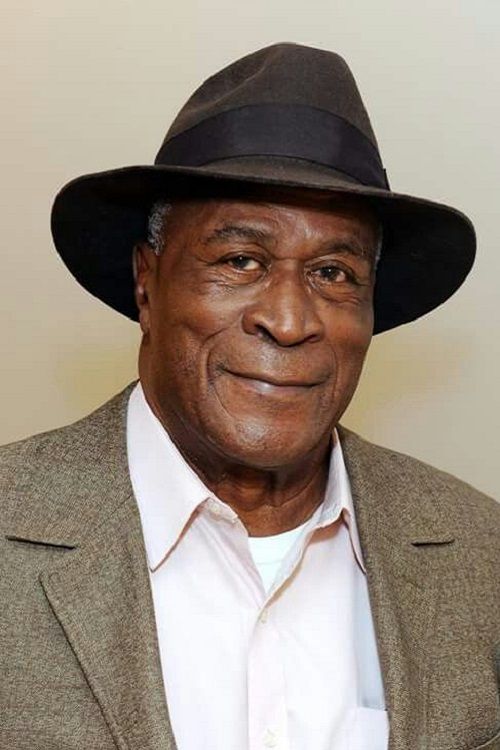‘Good Times’ Star John Amos Dead at Age 84
The entertainment world is mourning the loss of John Amos, the beloved actor known for his iconic role as James Evans Sr. on the groundbreaking television series “Good Times.” Amos passed away at the age of 84, leaving behind a legacy that spans decades of television, film, and theater. His contributions to the industry not only entertained millions but also broke barriers in representation and storytelling.
John Amos was born on December 27, 1939, in Newark, New Jersey. He grew up in a working-class family, where he developed a passion for performing arts at a young age. He initially pursued a career in sports, earning a football scholarship to play at Colorado State University. However, his path soon shifted toward acting, and he began honing his craft in various theatrical productions.
The Rise of a Television Icon
Amos’s breakthrough came in the early 1970s when he was cast in the role of James Evans Sr. on “Good Times.” The show, which aired from 1974 to 1979, focused on the struggles and triumphs of a working-class African American family living in Chicago. Amos’s portrayal of the hardworking and dedicated father resonated with audiences, showcasing the complexities of family life in an authentic way.
“Good Times” was notable not only for its humor but also for its willingness to tackle serious social issues, including poverty, racism, and systemic inequality. Amos’s character, James, was a source of strength and wisdom for his family, often providing poignant lessons about resilience and perseverance. His performance earned him widespread acclaim, and he became a beloved figure in the realm of television.
Amos’s work on “Good Times” also paved the way for more complex representations of African American families on screen. The show was a precursor to later successful series that would continue to explore the challenges and triumphs of Black life in America, such as “The Cosby Show” and “Fresh Prince of Bel-Air.” Amos’s impact extended beyond his role in “Good Times,” as he continued to champion authentic storytelling throughout his career.
A Multifaceted Career
In addition to his work on “Good Times,” John Amos had a diverse career in television and film. After leaving the series, he went on to appear in various notable projects, including the miniseries “Roots,” where he portrayed the character Kunta Kinte’s father. His performance in “Roots” was critically acclaimed and solidified his status as a versatile and talented actor.
Amos also made guest appearances on numerous television shows, including “The West Wing,” “The Mary Tyler Moore Show,” and “The Fresh Prince of Bel-Air.” His film credits include roles in “Die Hard 2,” “Coming to America,” and “The Last Dragon,” showcasing his ability to navigate both comedic and dramatic roles.
In addition to acting, Amos was also involved in writing and producing. He contributed to the creative aspects of several projects, emphasizing the importance of authentic representation in entertainment. His commitment to storytelling extended to the stage, where he performed in various theatrical productions, demonstrating his deep-rooted passion for the performing arts.
Advocacy and Legacy
Beyond his impressive body of work, John Amos was known for his advocacy for social issues, particularly those affecting the African American community. He often spoke out about the importance of representation in Hollywood and the need for more diverse narratives in the media. Amos understood the power of storytelling to challenge stereotypes and foster understanding among different cultures.
Throughout his career, Amos remained dedicated to uplifting the voices of marginalized communities. He participated in numerous initiatives aimed at providing opportunities for aspiring artists from underrepresented backgrounds. His influence extended beyond the screen, as he mentored many young actors and advocated for changes within the entertainment industry.
Amos’s legacy is not only defined by his remarkable performances but also by his commitment to creating a more equitable landscape for future generations. His work has inspired countless individuals, and his impact will continue to be felt in the industry for years to come.
Tributes and Remembrance
Following the news of John Amos’s passing, tributes poured in from fans, colleagues, and fellow actors who admired his talent and contributions to the industry. Many took to social media to express their condolences and share their favorite memories of Amos. His work on “Good Times” remains a cherished part of television history, and his portrayal of James Evans Sr. continues to resonate with audiences today.
Stars from the entertainment world, including those who worked alongside Amos, expressed their grief and gratitude for his influence. Many highlighted his kindness, mentorship, and the invaluable lessons he imparted throughout his career. Tributes from fans emphasized the enduring impact of Amos’s performances, showcasing how his work transcended generations and brought joy to countless households.
As the entertainment community reflects on Amos’s legacy, his contributions to television and film will be celebrated for their authenticity and cultural significance. His performances will continue to be remembered as a testament to the power of storytelling and the importance of representation in media.
Conclusion
The passing of John Amos marks the end of an era in the world of entertainment. His work on “Good Times” and beyond has left an indelible mark on television history, inspiring future generations of actors and storytellers. As fans and colleagues come together to honor his memory, they celebrate not only the remarkable talent he exhibited throughout his career but also the profound impact he had on the industry.
John Amos’s legacy as an actor, advocate, and mentor will continue to inspire those who strive to tell authentic stories and uplift underrepresented voices in the arts. Though he is no longer with us, his contributions to the entertainment world will forever be cherished, reminding us of the importance of diverse narratives and the power of representation in shaping our understanding of one another.

Leave a Reply